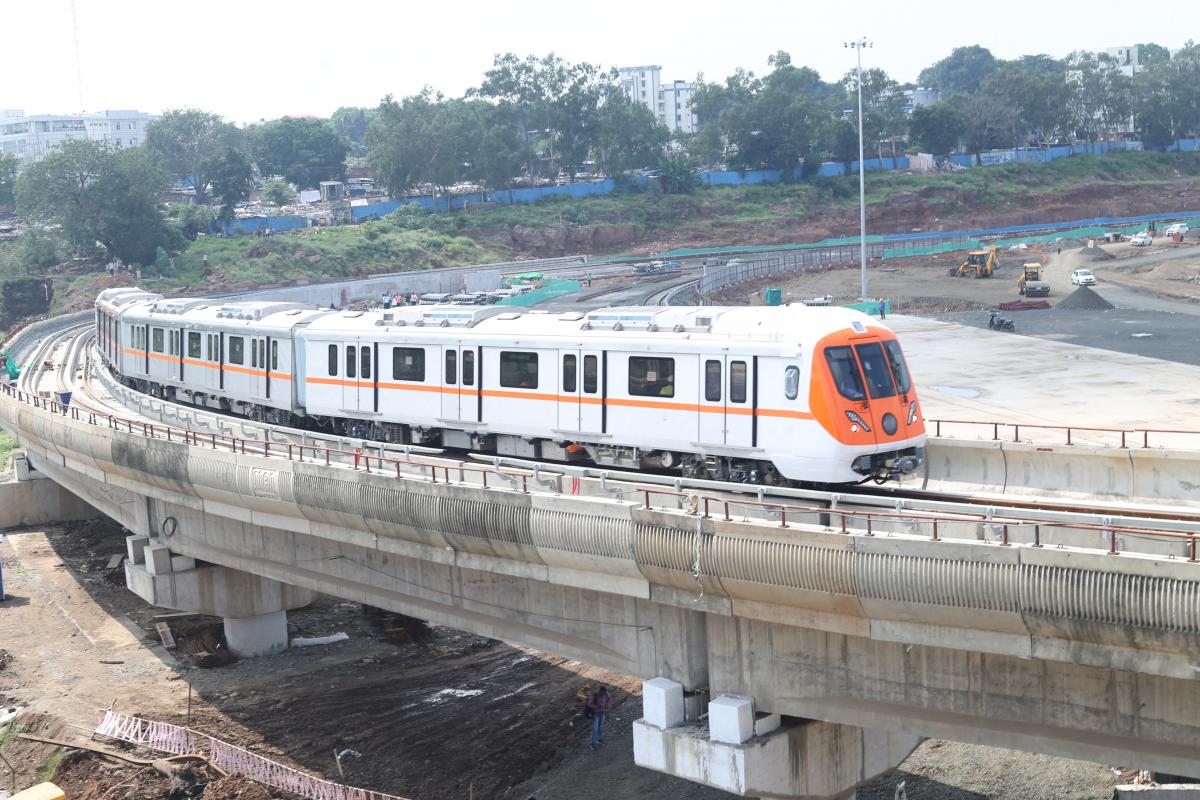As urban India intensifies its push for efficient mass transit systems, the city of Bhopal finds itself lagging behind.
Despite the simultaneous rollout of metro projects in Madhya Pradesh’s twin cities, Bhopal Metro’s long-awaited launch has been delayed again, with the July deadline appearing increasingly unattainable. In stark contrast, Indore is on track to inaugurate its first metro line by the end of May. While Indore’s 5.9-kilometre priority corridor is fully equipped with QR-based ticketing and automatic fare collection systems, Bhopal Metro continues to battle infrastructure bottlenecks. The 7.2-kilometre Subhash Nagar–AIIMS Bhopal corridor, forming 43% of Bhopal’s Orange Line, remains only 81.26% complete, with several critical components—stations, control buildings and depot facilities—still unfinished.
According to the latest data from the Union Ministry of Housing and Urban Affairs, the project has faced prolonged construction lags and is yet to receive mandatory approvals from key regulatory bodies, including the Research Designs and Standards Organisation (RDSO) and the Commissioner of Metro Rail Safety (CMRS). The absence of inspection schedules has further clouded its operational timeline, with officials indicating that a public launch will now likely occur only after the monsoon. Beyond technical delays, Bhopal’s struggles are compounded by systemic constraints. Compared to metro giants like Delhi, Mumbai and Chennai, Madhya Pradesh has received only a fraction of the national funding. For FY 2024-25, the central government allocated ₹47,710 crore for metro development across India, of which Madhya Pradesh received a modest ₹505.81 crore—just 1.06% of the total pie.
The disparity becomes starker when broken down further: Bhopal’s share stands at merely 0.45% of India’s total metro allocation, highlighting the financial imbalance in metro infrastructure development. This translates into significantly lower investment per kilometre in MP—well below cities like Chennai (₹46.72 crore/km) and Ahmedabad (₹136.46 crore/km).
Moreover, Bhopal’s project has now crossed the six-year mark, outpacing the time taken by cities like Nagpur, which completed a nearly 40-kilometre network in just five years. Coupled with a 30% escalation in project cost from its original estimate of ₹6,941 crore, the delays have exposed gaps in both planning and execution. The challenges are not merely technical. Unpredictable weather patterns, limited fiscal space, and administrative inefficiencies have turned the metro from a flagship infrastructure project into a slow-moving urban aspiration. Of the eight stations proposed for the priority corridor, few are fully equipped to handle passenger operations, leaving commuters in Bhopal still reliant on traditional transport systems.
Even as Indore gears up to join India’s expanding metro map, Bhopal’s delayed rollout is a reflection of uneven development within the same state. The case calls attention to the urgent need for more equitable and timely resource distribution, smart project execution, and sustained political commitment to sustainable urban mobility. While metro projects are often seen as icons of modernity and eco-conscious planning, their success lies in execution. For Bhopal, the promise of a connected, efficient city is still on hold—waiting for approvals, funding, and, most importantly, attention.
Also Read :Mumbai Metro Line 14 E-Tender to Open July 28


